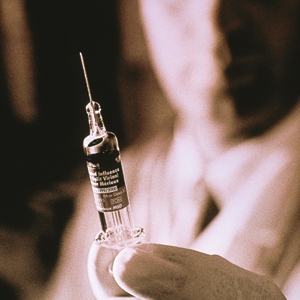Younger patients are less likely to think that vaccines are safe and effective compared to those aged over 65, according to EU research.
The study, published last week, surveyed patients across Europe and found age was ‘strongly associated’ with opinions on vaccines.
Researchers from the London School of Hygiene and Tropical Medicine and the European Commission set out to assess the confidence in vaccines among the public in all 28 EU member states, as well as in GP across in ten member states. Around 1,000 respondents from each state were included in the study.
It found that across all survey questions, ‘age is strongly associated with vaccination views, with younger age groups less likely than older groups to have positive vaccination views’.
The report said:
- Younger age groups are less likely to agree that vaccines are effective than over-65s in a number of EU member states;
- Those aged 25-34, 25-44, and 45-54 are less likely to agree that the seasonal influenza vaccine is safe in a large number of member states – compared to over-65s;
- Most age groups under 65 across the majority of EU 43 member states are less likely to agree that the seasonal influenza vaccine is important, although those aged 18 to 24 were more likely to hold similar levels of agreement towards seasonal influenza vaccine as over-65s;
- Across Europe, those aged 18-24 and 25-34 were less likely to agree the MMR vaccine was safe, than over-65s. In the UK, the age group of 35-44 year olds were the least likely to agree that the MMR is safe.
The survey also reported a ‘correlation between GP confidence and confidence among general public’.
It noted that in countries such as the Czech Republic and Slovakia – where many GPs do not think that the MMR vaccine is safe – there is low and reducing public confidence.
London School of Hygiene and Tropical Medicine Professor Heidi Larson, who worked on the vaccine confidence project, said: ‘Vaccine confidence is dynamic and volatile and must be watched closely, especially given the public health risks of vaccine hesitancy and refusal.’
She added: ‘Hopefully this report will be a catalyst for countries to pay attention to and monitor their own levels of vaccine confidence – change won’t happen overnight, but it is possible.’
This comes after the latest figures revealed that MMR vaccine coverage in children has dropped to its lowest level since 2011/12.
Pulse October survey
Take our July 2025 survey to potentially win £1.000 worth of tokens














